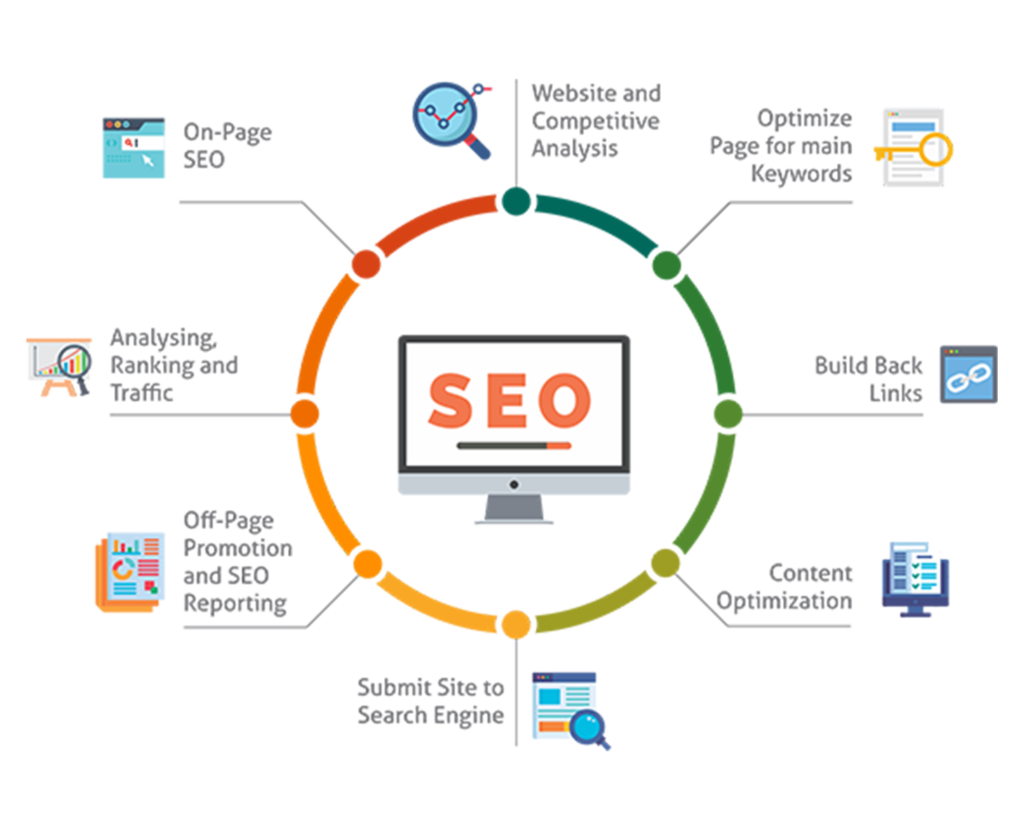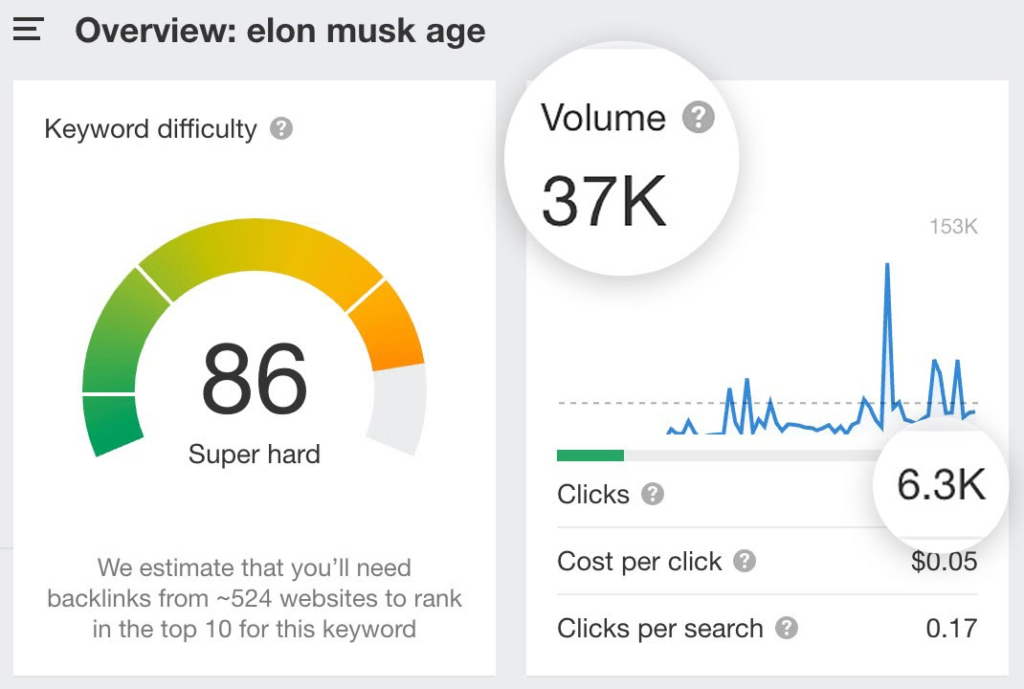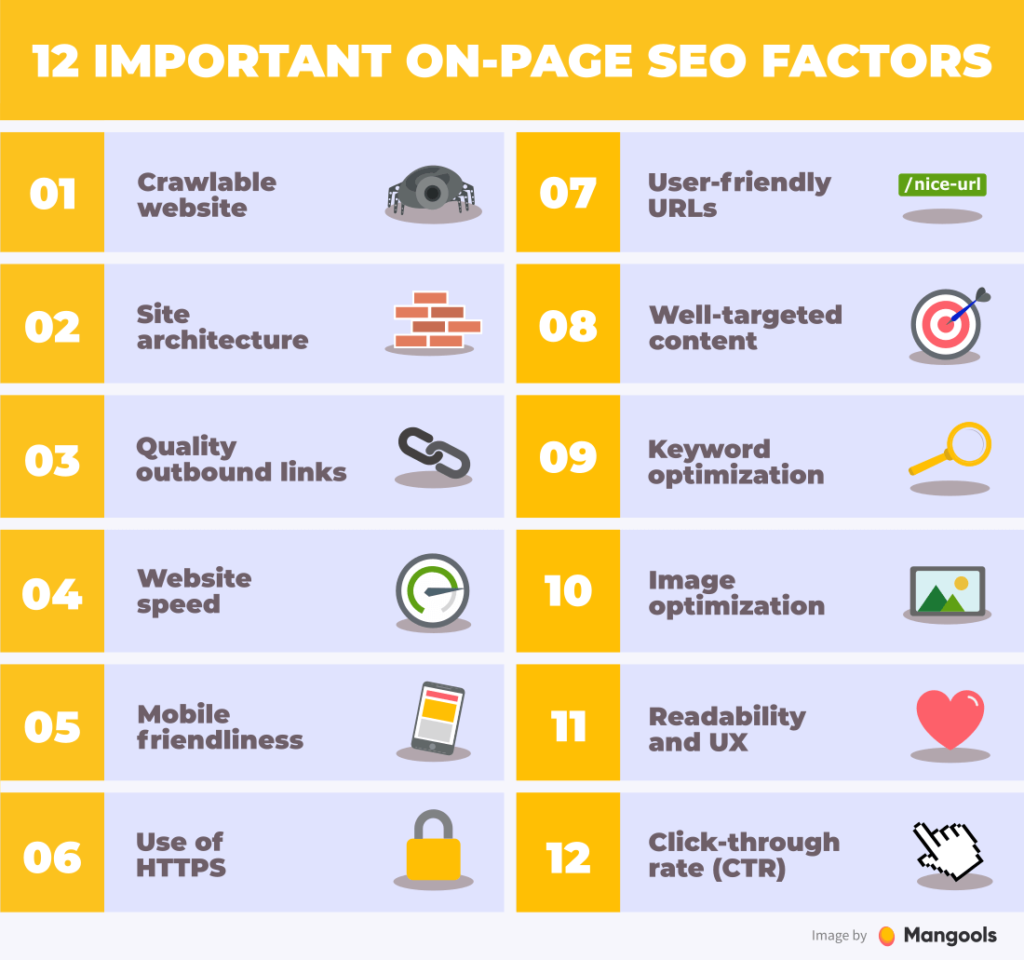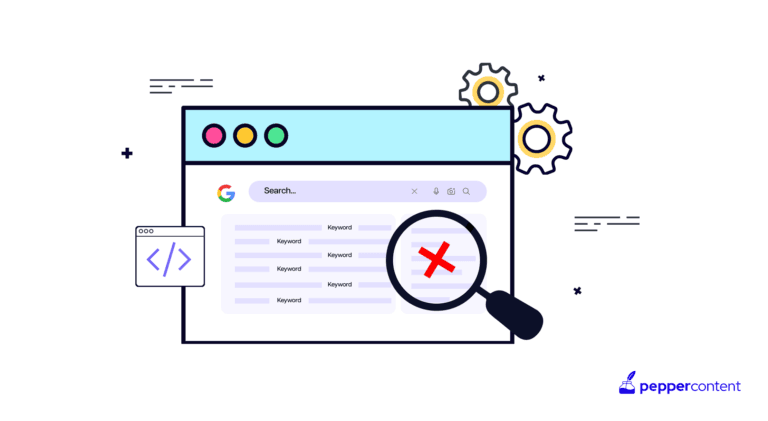SEO For Small Businesses: A New-Age Success Tool

Search engine optimization (SEO) has become an integral part of digital marketing for small businesses. With the ever-changing algorithm that search engines use, it can be challenging to understand and keep up with the latest techniques and strategies. This blog post will clarify the basics of SEO for small businesses.

It sheds light on why SEO is essential and how it can drive more traffic and customers to your website or online store. Additionally, it covers key strategies that you should focus on to improve your visibility in search engines.
The Role of SEO in Small Businesses
SEO for small businesses involves optimizing a website to rank on top in Google search engine results. It is an essential part of any digital marketing strategy and can drive traffic to a website, increase brand awareness, and generate leads and sales.
SEO for small businesses has several advantages. An SEO-optimized website will appear higher in search engine results, making it more likely to be seen by potential customers. This can lead to increased visits, resulting in potential sales and inquiries.
SEO can also help develop awareness about your brand, as customers are more likely to remember a website that appears at the top of search results. With nearly 60% of all web traffic now coming from mobile devices, SEO for small businesses has become necessary to remain visible and relevant online.
SEO for Small Businesses: The Benefits
SEO can help your small business in four ways:
- Increased traffic: Properly optimized content will rank on top in Google search and other search engine pages, which means more people will see it. As the majority (93%) of online ordeals begin with search engine queries, it is vital for a business to appear higher in the searches to attract visitors.
- Cost-effective marketing: Once you’ve optimized your website, you can achieve long-term results at a fraction of the cost of traditional marketing methods like print ads or television commercials.
- Greater insights into customers: Through SEO tracking tools like Google Analytics, you can gain valuable insights into who your customers are, what they’re searching for, and how they interact with your site. This information assists in making better decisions, from the products you sell to the content you publish on your SEO blog post.
- Improved brand awareness: A strong SEO strategy will help build brand awareness by improving your website’s online visibility. This can help build trust and loyalty for new and existing customers alike.
Tips on How Small Businesses Can Make the Most of SEO
Many small businesses need a larger budget for marketing and advertising. SEO is an excellent way for them to get exposure and traffic to their website without spending much money.
Below are a few tips on how small businesses can make the most of SEO:
1. Research your keywords.
Keyword research is essential for any on-page SEO campaign. It would be best to find keywords that are relevant to your business and have a significant search volume. Many free keyword research tools are available, such as Google AdWords Keyword Planner and Wordtracker.

2. Optimize your website for your chosen keywords.
Once you’ve researched your keywords, you need to optimize your website for them. It includes adding keywords to your titles, metatags, headings, and content. This is an essential metric for on-page SEO website ranking.

3. Build links to your website.
Links are an important factor for SEO ranking. The more links you have pointing to your website, the higher it will rank in the search results.

4. Monitor your progress.
It’s essential to monitor your progress to see what’s working and what isn’t. You can use Google Analytics or other web analytics tools to track your traffic and keyword rankings over time.
Strategic SEO Steps Small Businesses Can Take To Grow
Small businesses can take several strategic SEO steps to grow their online presence and visibility.
Here are some essential tips:
- Conduct keyword research to identify the right keywords to target for your business.
- Optimize your website content for these keywords.
- Build reputable and relevant backlinks pointing toward your website.
- Keep a check on your website ranking on Google and other popular search engines on a regular basis.
- Make continuous improvements to your SEO strategy to ensure long-term success.
- You can promote your content through social media and link it to your website to get a new audience.
- Consider local SEO strategies to ensure your business is visible in local searches.
- Monitor changes to search engine algorithms and adjust your SEO strategy accordingly.
- Analyze your competitors’ SEO strategies to identify new growth opportunities.
- Measure the success of your SEO efforts and adjust the overall strategy if necessary.
5 Common Misconceptions About SEO
There are many misconceptions about SEO, and knowing what information to trust can be challenging. Below are several misconceptions that small businesses have about SEO:
- SEO is all about keywords: While keyword research and optimization are essential components of SEO, they are just one part of the puzzle. To achieve successful results, businesses must also consider other factors, such as website structure, content quality, and user experience.
- You need to pay for SEO services: Hiring a professional can indeed be beneficial, but there are many activities that you can do yourself to improve your SEO rankings and visibility in search engines. With some basic knowledge and guidance, DIY SEO can be effective.
- Once you’ve achieved good rankings, you can stop doing SEO: Ranking on the first search engine results pages (SERPs) is only the beginning. To maintain these rankings, ongoing maintenance and optimization efforts are required; otherwise, your competition will overtake you in no time.
- Link building is the most critical part of SEO: Link building is undoubtedly an essential aspect of SEO, but it should not be viewed as a standalone tactic; rather, it should be seen as part of an overall optimization strategy that includes other elements such as website structure, content quality, and user experience.
- You can do your own SEO: While you can define the SEO strategy for your business, it can be difficult and time-consuming for those who need the necessary technical knowledge. The stakes can also be high; if done incorrectly, it can result in a website being penalized by search engines.
To Summarize
It’s clear that with the ever-changing world of digital marketing and online presence, SEO is an integral component for any small business. By understanding the basics of SEO, you can ensure your sites are optimized to get higher website rankings on search engines, driving more traffic and leads to our websites. With this knowledge and the right tools, there’s no reason why you won’t be able to create a more successful online presence than ever before!

FAQs
SEO stands for search engine optimization, which means optimizing a website for greater visibility in search engines.
SEO can give small businesses a competitive advantage against other businesses looking to sell products under similar categories. Small businesses can get more website visitors by appearing higher in search engine results, leading to increased sales and revenue.
There are many ways small businesses can improve their SEO, including modifying website content, building backlinks, and using social media to promote their website.
Latest Blogs
Explore how Google’s 2025 AI search updates triggered ranking chaos. Learn actionable strategies to adapt your SEO for AI Overviews, zero-click searches, and SERP volatility. Stay ahead now.
Learn how to rank on AI search engines like ChatGPT, Perplexity, and Gemini by optimizing your content for authority, structure, and relevance. Stay ahead in AI-driven search with this strategic guide.
Explore the best healthcare SEO services for your medical practice. Improve online visibility and effectively reach more patients in need of your services.
Get your hands on the latest news!
Similar Posts

Organic Marketing
8 mins read
Oops, I Think I SEO’d Too Much! What is Search Over-Optimization and How to Fix It

Organic Marketing
9 mins read
What is AMP? A Beginner’s Guide to AMP Pages & SEO

Organic Marketing
11 mins read